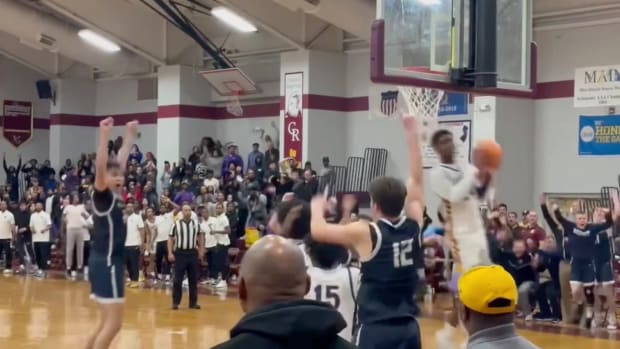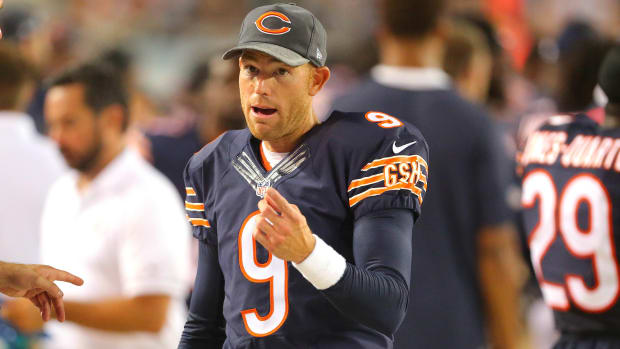McDowell tailback Greg Garmon perseveres on, off the football field
He's even harder to take down off the field.
Garmon, 18, has had much to overcome. In the summer before sixth grade, his house burned down. He didn't know what to think, his not yet adolescent mind unable to grasp that all of his possessions had gone up in flames. "I just thought we'd go out and get a new house, buy new stuff," he said. "I thought it was that simple."
He didn't know it at the time: Nothing in his life would be simple again.
After spending the year at a friend's while his mother, brother and stepfather lived in a hotel, he moved with his family to a new house before seventh grade. Stability re-emerged and he began to excel athletically, garnering attention from local private school coaches. He was popular and well-liked at school. He was on the cusp of his teenage years, replete with their pubescent aches and pains.
But one pain was more serious than most. For more than a year, Garmon complained of a severe pain in his left hip. Doctors chalked it up to "growing pains", dismissing it as a nonissue. But after a series of medical tests, Garmon's mother received a phone call. On a November afternoon, hovering outside his her bedroom, Garmon heard her voice tremble: He had non-Hodgkin Lymphoma of the bone.
"I remember seeing movies where people had cancer," he said. "They never looked like me. They were never young. They weren't athletes."
In fact, for males under 15, the incidence of non-Hodgkin Lymphoma is 11.2 per one million. Garmon was the exception.
"You don't think it can happen to someone like you and then suddenly, it does," he said. "You don't think that in eighth grade you're going to have cancer."
He began treatment at the Erie Children's Hospital immediately, traveling to Pittsburgh for additional care. For the next three months, he underwent weekly chemotherapy and radiation. Blood work was completed daily. Spinal taps and therapy followed. Garmon stopped attending school and required a tutor to keep up. His whole life, in an instant, had changed.
"People couldn't come over for the holidays because my immune system was so down," he said. "I was worried it would change my life, that I could never be the same, could never play sports again."
Six months after his diagnosis, however, in May of eighth grade, Garmon received the news: He was cancer-free. He settled into summer and looked forward to playing football. He didn't compete in middle school, so freshman football presented the best chance to regain his former lifestyle. Taking the field in August, he was unsure of what toll the chemotherapy would have on his body.
"The first time I got hit, my whole body was tingling," he said. "I remember being unsure what happened, what was going on exactly. I didn't remember football being like this."
Determined to recapture his success, Garmon completed a grueling weightlifting regimen, making the varsity team by his sophomore year. He hit the books with equal resolve, progressing from applied to academic classes. That's no small feat considering he also has a learning disability that affects his writing.
"He worked from something being a weakness to now being something he can handle," said Jessie Zablotny, Garmon's teacher for two years. "I think that stems from all the difficulties he's gone through in his life. He just wasn't ready to quit."
His hard work has paid off. Garmon has blossomed into a star student and one of the most coveted running back recruits in the nation.
Garmon raced for more than 1,800 yards and 18 touchdowns over his sophomore and junior seasons, and has racked up 997 yards and nine scores through ten games this year. He's received a bevy of BCS offers, and his top six includes Pittsburgh, Michigan, Iowa, Illinois, North Carolina and Arizona State.
But colleges still bring up his cancer. Though Garmon has been in remission since 2008, coaches voice concerns with his off-the-field battles, with how his mental and physical durability will translate to the next level.
"Every coach I talk to asked me about it," he said. "It was something that always came up at first."
But Garmon's overcome bigger challenges in the past. As with most things in life, he won't let the negativity bring him down.
"I won't say that it is a good thing to go through cancer or to lose your house all in a couple years time, but it helped shape me into who I am," he said. "And it will shape me in the future."




